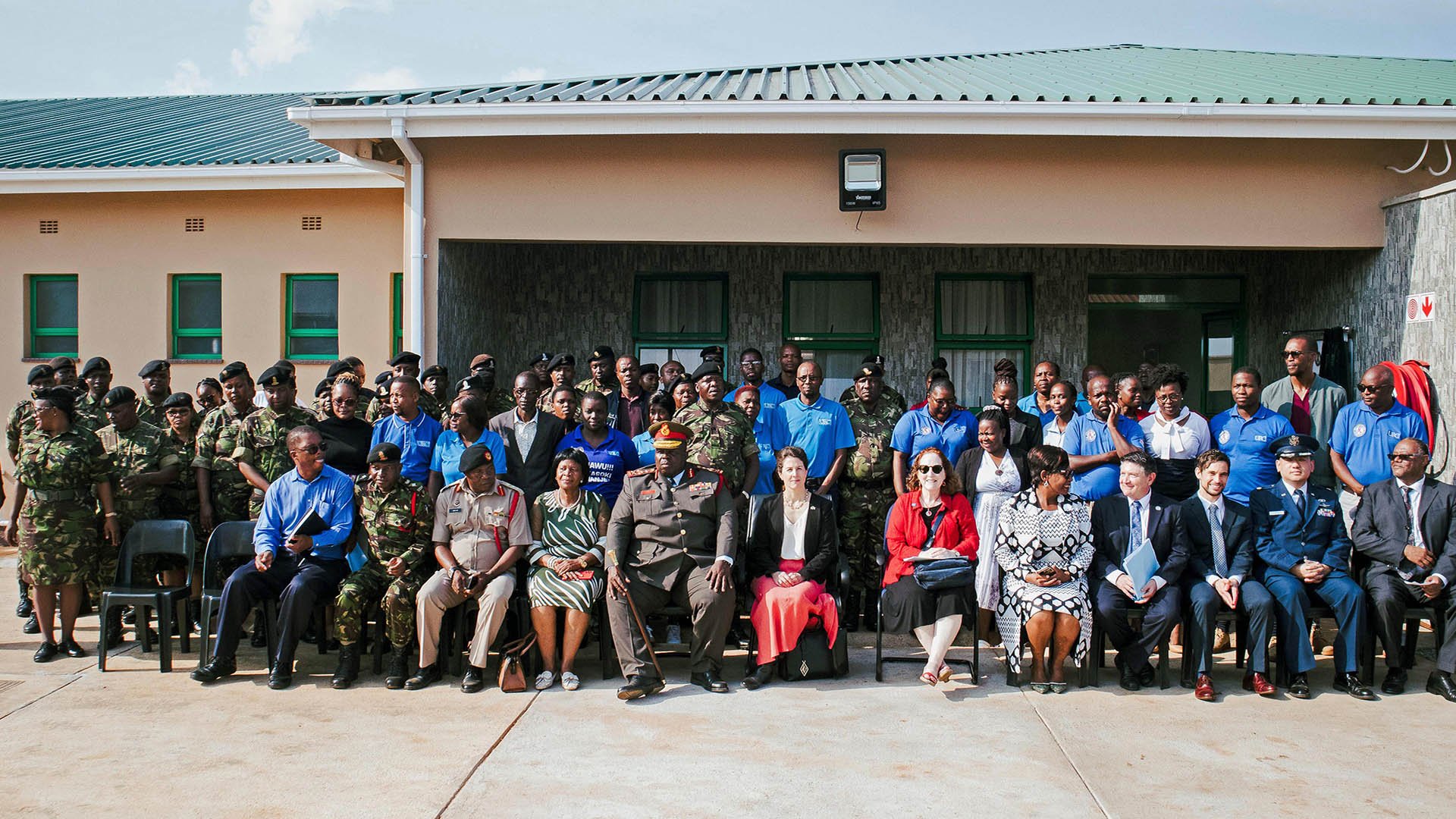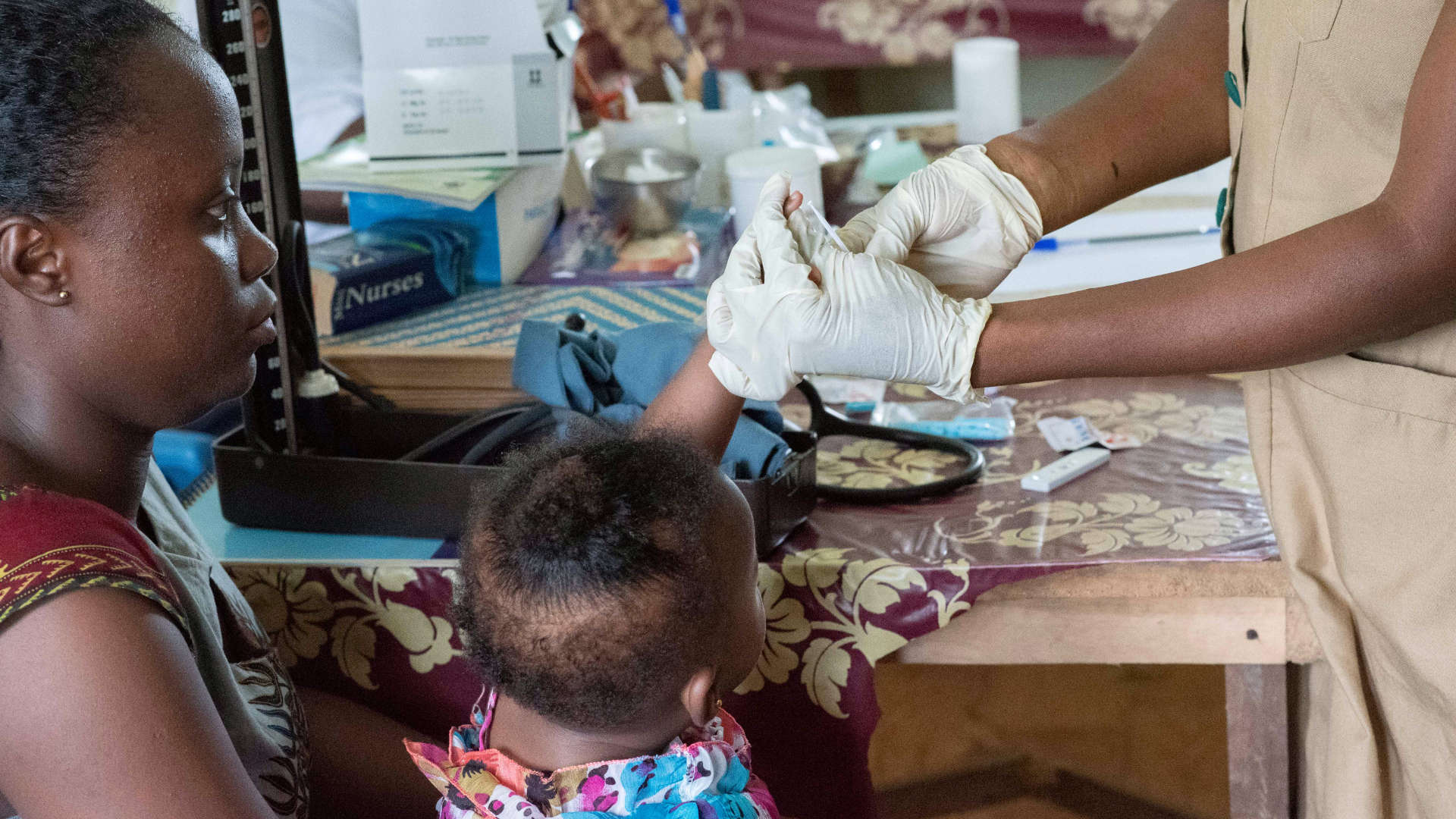Since 2018, PEPFAR has invested $130 million in cervical cancer screening and treatment among women with HIV globally. Women living with HIV are six times more likely to develop precancerous lesions that advance to cervical cancer than women without HIV. And in sub-Saharan Africa, cervical cancer is the leading cause of cancer death among women.
In the Kingdom of Eswatini, cervical cancer is the most common cancer among women ages 15 to 44 years old. And Eswatini has the highest HIV prevalence rate in the world. In October 2021, 341 of every 100,000 women in Eswatini were diagnosed with cervical cancer. Of these women, 217 died, resulting in a case fatality rate of 63%.
Through the URC-led, PEPFAR-funded Department of Defense HIV/AIDS Prevention Program Eswatini (DOD Eswatini URC Project), URC supports Eswatini’s government to reduce new cases of HIV, TB, and sexually transmitted infections in the Umbutfu Eswatini Defence Force (UEDF). The service package offered includes cervical cancer screening of HIV-positive women on antiretroviral therapy (ART), and treatment of precancerous lesions among the military and civilian population accessing the 10 UEDF clinics.
“Vaccinate, Screen, and Treat” Reduces Cervical Cancer Mortality
As the fourth most common cancer globally, cervical cancer is unique. It is the only cancer that can occur because of a virus. 95% of cervical cancer is attributed to the human papillomavirus (HPV), a common viral infection.
Primary prevention against this virus involves vaccinating adolescents. Screening and treatment of precancerous lesions is also critical to reducing mortality from cervical cancer, particularly in populations with a high percentage of unvaccinated girls and women.
To promote best practices in cervical cancer prevention and care, the DOD Eswatini URC Project has carried out numerous interventions together with the UEDF since 2019 to integrate and scale up cervical cancer services in military clinics. They have:
- Trained ART nurses and other health care workers on the benefits of cervical cancer screening
- Collaborated with Faith and Communities Initiative teams to provide health education to increase the demand for cervical cancer screening
- Screened women living with HIV for cervical cancer at all clinic sites in line with the national screening protocol
- Procured treatment equipment and supplies
- Trained health providers at Phocweni Clinic in loop electrical excision procedure (LEEP) to remove cervical tissue containing abnormal cells
- Formed relationships with nearby clinics for precancerous lesions treatment and referrals
- Established a sticker system to easily track women on ART who have been screened for cervical cancer, and those who are due for screening
- Supported procurement and establishment of precancerous lesions treatment center at the main hub clinic in Phocweni
- Reviewed the mentoring package to include clinical mentoring for cervical cancer screening, correct classification of lesions, and treatment support
The DOD Eswatini URC Project team continues to provide periodic clinical mentoring to all sites to support the identification of women on ART who are eligible for screening.
HIV-integrated Cervical Cancer Interventions Show Results
Eswatini’s HIV integrated management guidelines – which the DOD Eswatini URC Project helped to develop – recommend cervical cancer screening for all women on ART.
The project has surpassed its annual target between October 1, 2021, and September 30, 2022, screening 1,030 women for cervical cancer, exceeding the target of 652 women.



